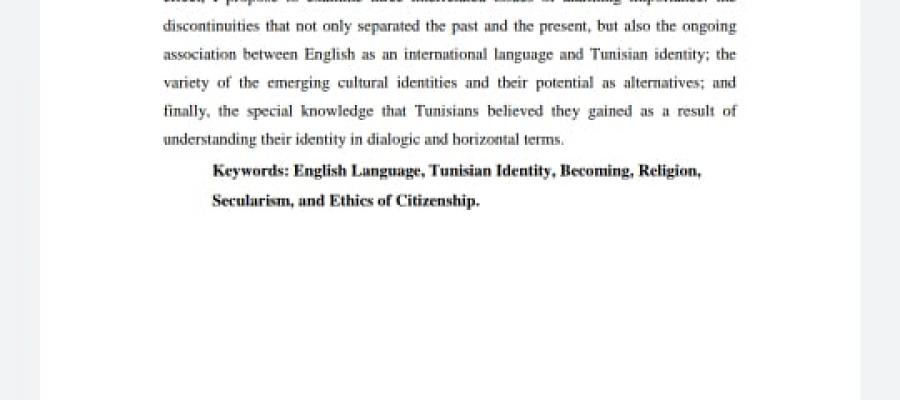Abstract
This paper is about the political implications of the spread of English in postrevolutionary Tunisia. It raises fundamental questions about the nature of the revolution of 14th of January in Tunisia, identity politics and language. Subsequently, this paper debunks the conventional views of English language teaching and applied linguistics as independent from identity politics. English is thus taught in a new political context marked by a post-modern and deconstructive conception of identity. From this vantage point, this article attempts to discuss the ‘becoming’ of both the Tunisian identity and the English language in post-revolutionary Tunisia. It delineates the characteristics of the Tunisian identity by invoking Maryse Condé’s Segu. In effect, I propose to examine three interrelated issues of alarming importance: the discontinuities that not only separated the past and the present, but also the ongoing association between English as an international language and Tunisian identity; the variety of the emerging cultural identities and their potential as alternatives; and finally, the special knowledge that Tunisians believed they gained as a result of understanding their identity in dialogic and horizontal terms.
Keywords: English Language, Tunisian Identity, Becoming, Religion, Secularism, and Ethics of Citizenship.

